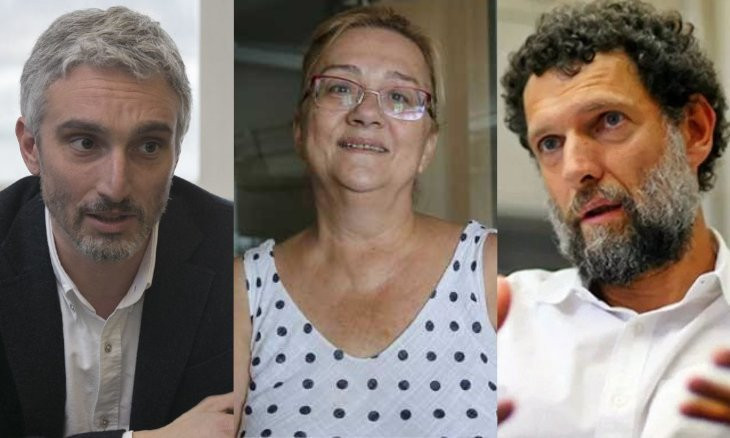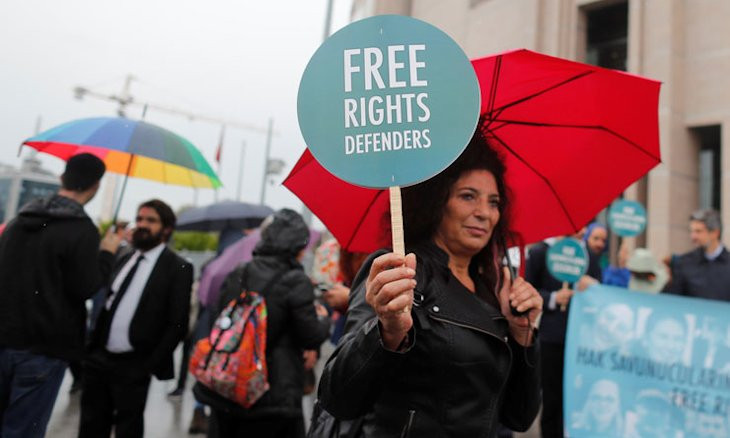Istanbul court postpones trial into rights defenders
The Istanbul 35th Heavy Penal Court on Feb. 19 postponed the trial into 11 human rights defenders, including Amnesty International Turkey’s Honorary Chair Taner Kılıç and its former executive director İdil Eser, to April 3. "Both us and our organizations are being tried to be criminalize in this trial," Kılıç told the court.
Duvar English
The Istanbul 35th Heavy Penal Court on Feb. 19 postponed the trial into a group of human rights defenders to April 3 in a hearing that was expected to be the final one.
 Amnesty International urges freedom for Osman Kavala, rights defenders in Gezi case
Amnesty International urges freedom for Osman Kavala, rights defenders in Gezi caseA total of 11 rights defenders are being tried in the Büyükada Case, including Amnesty International Turkey’s Honorary Chair Taner Kılıç and its former executive director İdil Eser, on various charges, including “being a member of an armed terrorist organization” and “aiding armed terrorist organizations.”
They were detained in 2017 while they were attending a human rights workshop on Büyükada, an island near Istanbul.
The previous hearing of the case was held on Nov. 27, 2019, where a prosecutor sought prison sentences for Kılıç, Eser, Günal Kurşun, Özlem Dalkıran, Nejat Taştan and Veli Acu, while also seeking the acquittal of Peter Frank Steudtner, Ali Gharavi, İlknur Üstün, Nalan Erkem and Muhammed Şeyhmus Özbekli over lack of evidence.
Taştan, Kılıç, Acu, Üstün and Kurşun were present at the hearing to state their defenses that was followed by Peoples' Democratic Party (HDP) deputy Ahmet Şık, main opposition Republican People's Party (CHP) deputy Sezgin Tanrıkulu, representatives of human rights groups and journalists.
 Presidential spokesperson 'should be tried if writing for Gülenist daily is a crime'
Presidential spokesperson 'should be tried if writing for Gülenist daily is a crime'In his defense, Kılıç said that the accusations of him having ByLock, a smartphone application used by followers of the U.S.-based Islamic preacher Fethullah Gülen, which is officially called the Fethullahist Terrorist Organization (FETÖ), on his phone are not true.
"According to the expert report presented in the case, my phone was turned on and used after I was detained. The expert said that ByLock was not installed or removed from my phone," Kılıç told the court.
"Both us and our organizations are being tried to be criminalize in this trial," he also said.
Kurşun, in his defense, said that his imprisonment is sought over membership of several groups designated as terrorist organizations "without any evidence," asking the court how it's possible for a person to be a member of ideologically such different groups.
The trial was postponed to April 3 in order for the lawyers to complete their defenses.
